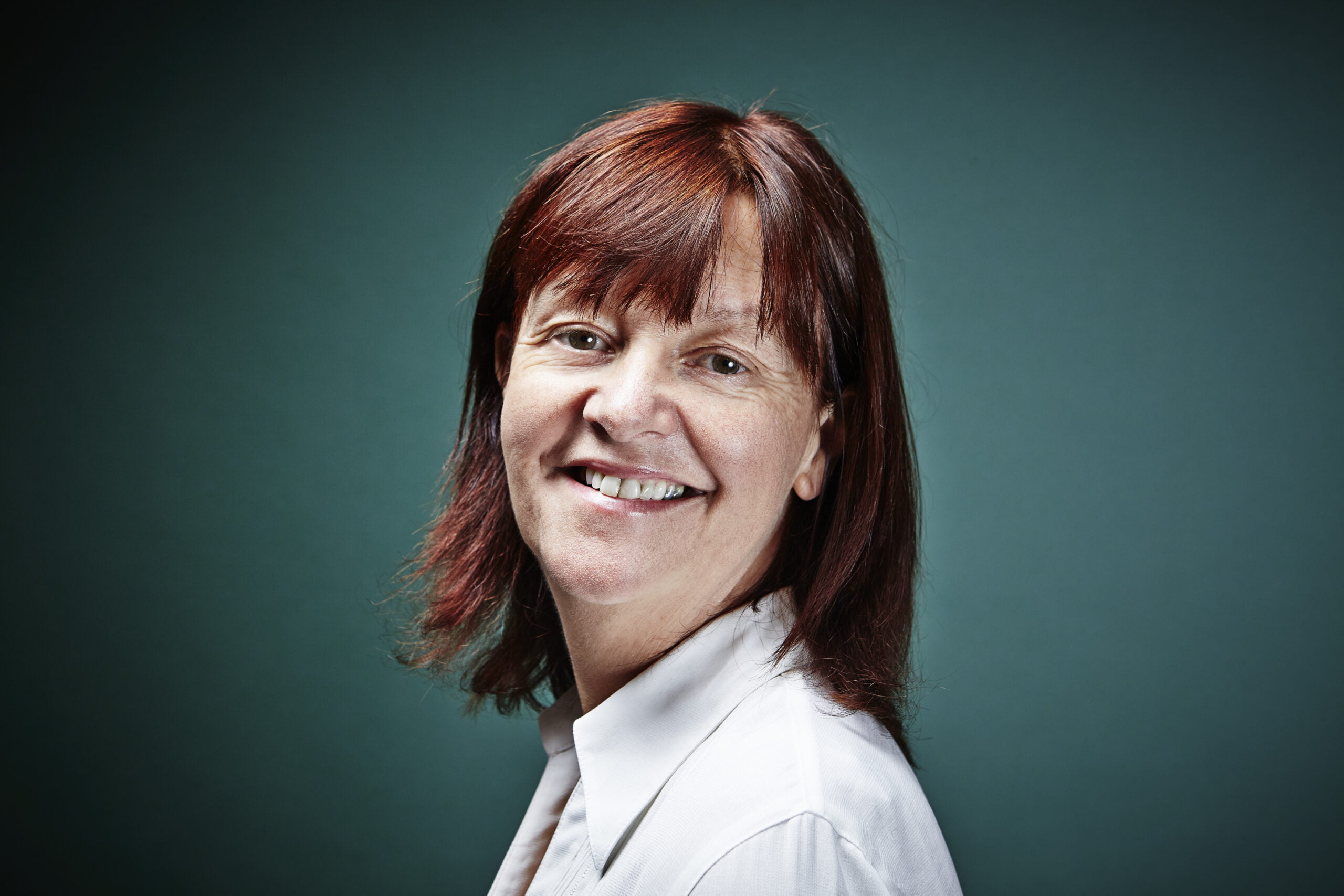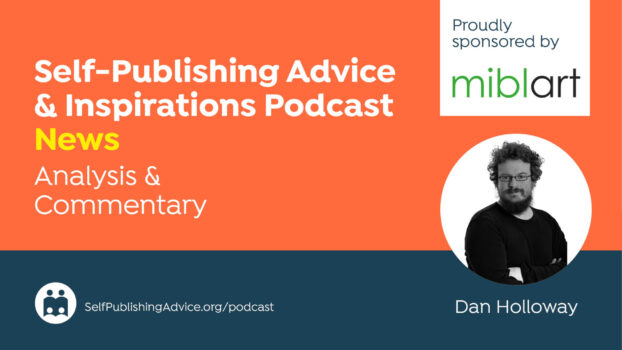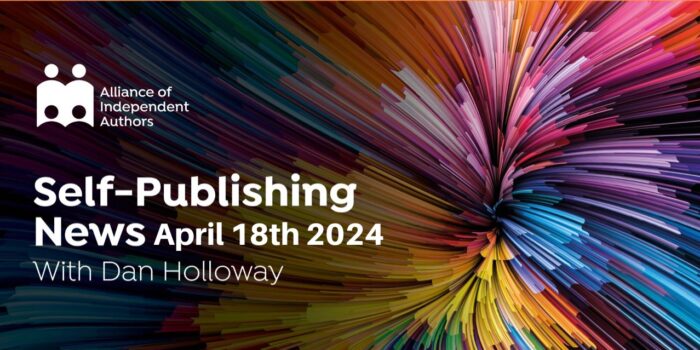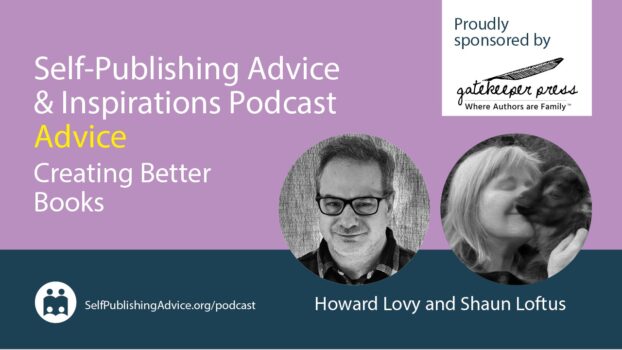Half or more of the books on Amazon’s daily bestseller lists are now self-published. At The Alliance of Independent Authors (ALLi), we have many members who have sold more than 100,000 books and some who have sold in their millions. Many others are producing work of outstanding literary merit. Corporate publishers and agents now scour self-publishing sites, hoping to woo writers away from the indie option.
There's no denying that self-publishing times have changed — and also no denying that it’s time these changes were more widely reflected throughout the literary and book worlds — festivals, events, reviews, libraries, bookstores.
That's why we're launching ALLi’s #PublishingOpenUp campaign at The London Book Fair and Book Expo America (see right and below). Here I’d just like to address the #1 problem cited by those who say they’d like to incorporate self-publishers: the huge volume and growth in books and the perceived difficulty of book discovery.
Or, as one publishing executive recently referred to it: “the mountains of crap problem”.
Nobody denies that self-publishing facilitates the production of many bad books but is this actually a problem?
I'd argue that if it is, it's one that's easily solved. A simple shift in mindset will do it: from scarcity to abundance thinking, from commercial to creative imperatives.
Scarcity Versus Abundance
Corporate publishing works from a scarcity model, grounded in commercial principles. It selects a very few books to be published, assigns them a value dictated by publishing overheads and supply chain, and protects their value with copyright.
Self-publishing works from an abundance model, grounded in creative principles. All books can be published and it is writers and readers who decide on value, based on a wide variety of considerations.
But how to decide, asks a recent comment on a newspaper forum: “With so many ebooks being produced, the talented new writer who takes care over editing and production is likely to be lost in the sea of uploaded dross with titles such as Mi Lyfe Storey.”
Whether you find that comment amusing or patronising, the fact its: it’s simply not true. Book search algorithms are very sophisticated and getting better all the time. Mi Lyfe Storey would immediately plummet to the nether regions of Amazon or Smashwords, because it wouldn't match any search keyword terms.
Your talented new writer, if he or she took a little time to learn some basic ways to reach readers, would begin to climb the ratings. It takes a little work but it's not difficult — and many trade published writers are being encouraged by their publisher to use the same methods.
From the reader's perspective, it's a simple matter to download a sample and try before you buy. They also have independent reader reviews to go on, a book, description and author bio that probably clicks through to the author website. It’s may not be a perfect system but it's getting better all the time — and it makes good books and authors considerably more discoverable than the old bookshop browsing method.
Creativity Rising
This apparent cri de coeur about literary values is actually fear of change, often from those who are invested in the old order. And fear of the creative. Creativity is never orderly and neat; it’s colourful and chaotic and kaleidoscopic and we need a publishing scene that acknowledges, and is prepared to be more reflective of, that truth.
This is how nature, the fundamental model for all creativity operates. An oak tree throws a lot of acorns to get one baby oak. A lot of sperm miss out on the egg.
Throughout cultural history — Renaissance Italy, Elizabethan England, Literary Revival Ireland — where new forms and formats allow creativity to flourish, overall standards rise. As the means of expression become available to more people, more tyro and aspirant books — “mountains of crap Mi Lyfe Storeys” — are facilitated, yes, and also more accomplished and virtuoso work. More masterpieces rise to the top, the expanded tip of an enlarged mountain.
So what’s important in an abundance model is not how many bad books are enabled — they quickly fade into invisibility — but only how many good books are enabled.
And who knows that the person who publishes a “crap” book today may not write a great one in time? Writing and publishing are both creative skills, learned by doing… by apprenticeship. Practice can and does make… if not perfect, then certainly better and better.
What matters, or what should matter, to those who care about literary culture is that self-publishing is enabling more great books than ever before. That it's allowing writers to decide what they'll publish when, thus delivering more freedom to experiment and grow. And that it's giving readers, rather than retailers or publishing execs, the deciding vote on which writers succeed.
And that is as it should be.
Is it not?
Watch out for ALLi's #PublishingOpenUp campaign by following the hashtag on Twitter. The campaign — a petition, lobbying of the industry and guidebook — urges but also aids the book and literary industries to incorporate more self-publishers into their programmes. We know there are challenges in doing this and they are discussed in detail in the guidebook by Debbie Young and Dan Holloway, Opening Up To Indie Authors. If you support this campaign, you can sign our petition here. You can join ALLI, The Alliance of Independent Authors, here.






[…] apparso sul sito dell’Alliance of Indipendent Authors in occasione del lancio della campagna #PublishingOpenUp, che risponde a coloro che criticano il self-publishing per l’enorme volume di libri che sta […]
[…] Grown up author-publishers know: Self-publishing is good for literary culture. […]
[…] The panel agreed – authors need to be empowered marketers in these times (as Joanna said, no one is going to love your book more than you), but this is not something that has to be limited to a set publishing path, and it definitely doesn’t mean reducing output. […]
[…] as key to success for any publisher, trade, author or indie (more on those thoughts here and here) — and suggest how publishing needs to transform, if it is to benefit from the skills and […]
[…] And, if you want a more experienced perspective than mine—a writer who’s always been a maverick—you can read what Orna Ross, Founder and Director of The Alliance of Independent Authors (ALLi) has to say in, Why Self-publishing Is So Good For Literary Culture. […]
[…] director Orna Ross, in her post on the topic entitled “Why Self-publishing Is So Good For Literary Culture,†points out that: […]
I definitely agree with this post! Especially here in Canada, I get a bit disheartened at the kind of books that are considered award-worthy. I feel like there should be more room for humour and risk-taking, that everything is a bit on the depressing side. Which of course has a lot to do with taste and not really literary merit; however, if I’m not interested, perhaps there are more people like me out there? I think the self-publishing-DIY method is a fantastic way for authors who know their audiences to get their books out to like-minded people. Finding them is another matter, but why not?
I loved the comments about “fear of change.” What is there to lose?
Amazing post and really like your ideas on “Self Publishing”.
Anything venue, creation, thought or microbe that opens the door for the exploration of life via the arts is always a great thing. The books have always been out there, hiding in drawers, files, computer files. Now the passage way is open and the roads are being followed.
The open-ness that the self-publishing revolution has generated is the most valuable product. Yes, the door has let unworthy books through, but many jewels are there among the rough stones.
Although much hard work is needed to make your books visible and so discoverable, good books will succeed and work which would have remained archived on a computer hard disk or in the cloud has given pleasure to hundreds of thousands, well, millions actually.
The boundaries between types of publishing are blurring, and fast. And this is a good thing.
Couldn’t agree more Alison… here’s to more rough stones and fine jewels!
Both of these articles were very good! I have self published 8 books and now working on the ninth! Since our town’s last bookstore closed, I have been selling person to person out of my briefcase and on Amtrak when I travel to California or Michigan from New Mexico.
I’m still hoping that St. Martin’s Griffin will find my paperbacks( Sotherton Abbey, Blaize Castle) among the mountainous pile of undistinguished works and dignify my efforts with the name of a major house!
Finding an agent is a similar effort. Many simply do not have time to read new submissions!
Inez Ross
Hi Inez, have you also published ebooks? Most of our members sell far more e than p… usually about 10 to 1, often as much as 100 to 1.
Yes, two of my books are also e books, but I don’t seem to get any sales!
Inez Ross
A hearty round of applause from this corner (and serendipitious – this is the subject of what I’ve written for the book’s launch). Most of life’s questions can be tackled in two ways – how do we keep all the wrong ones out? or how do we let all the right ones in? (I think I’d be right in saying that is pretty much what you mean by scarcity and abundance). For me, the latter is far and away the most important question (don’t get me onto politics, suffice to say I think we could do with more of that approach when it comes to helping the vulnerable).
I agree with what you say about fear of change. Journalists in particular come up with a lot of reasons why allowig the “mountains of crap” will make it impossible to find the gems. I have to say that as someone with a full-time job, a huge number of home commitments, and several by-lines not to mention my own writing, I still manage to sift hundreds if not thousands of titles to eke out some true gems – the idea that someone whose full time job is to do so couldn’t do so shows they’re either 1. so incompetent they should be sacked in favour of someone who can or 2. covering something up – most likely, as you say, a fear of change.
This is very similar to recent concerns that have been raised about British literature’s lionisation of the “very good” at the expense of the dazzlingly brilliant. We are, or at least our media are, obsessed with perfect sentencecraft, beautiful presentation, and impeccable research. Which means that we produce a lot of very good books. The books that win awards are very good, and self-publishers aspire to be very good. And that’s a tragedy for readers because it means that the already-too-many-to-read-in-a-lifetime pile of very good books will be ever swollen whilst the pile of truly life-changing books remains the same meagre size. Fortunately small presses are leading the way with titles like Eimar McBride’s A Girl is a Half-Formed Thing. I find it dispiriting that self-publishing has ceded the vanguard in this quest to some extent – every time I see another gatekeeping site that promises “the best self-publishing” based on Amazon reviews or quality of proofreading or narrative arc consistency, a little more hope is extinguished. I’ve even taken the ultimate step and gone with a small publisher with my own new book. We need to bang the drum REALLY loudly on this because self-publishing should be, and indeed still is – just look at the world of zines and pamphlets and even tumblr and you’ll see that – the home of bold and brilliant new fiction. What we need is a media that’s willing to see this.
Bang! Bang! (drum being loudly beaten!) I’m not sure self-publishing has ceded the quest so much as diversified… populist will always be more popular but diversity delivers — it’s early days yet, IMHO. By the way,did you see Mitchell Davis’s thoughts on how libraries can play a part in bringing great books to readers? http://pubsmartcon.com/libraries-patrons-can-beat-publishers-publishing/
Really, Orna. This has the ring of truth – a regular Medusa’s head to freeze further argument.
My friend Mary W. Walters, who has written several excellent books and been published both ways, said recently that in the time before self-publishing it was as though people could only get around by limousine. The limousine-culture people were reasonably happy with the arrangement, knew one another, and were safe in their scorn of those who couldn’t get in. Now, it’s almost anything goes, unicycles, skateboards, what have you. There is chaos, but it is getting sorted as you suggest, by readers who can decide what they like rather than solely by agents and publishing houses who were only guessing what readers might like. (I’m paraphrasing. Mary said it better and had some nice graphics). Still, I’m not sure the breaking through in all this mess is easy, even for a good writer. Not that it should be, but there is struggle there. Thanks for your good work.
Thanks so much Kim. No, the job spec for writer — and self-publisher — doesn’t have “easy” written anywhere. The hardest thing is staying with it, learning from the mistakes and staying resilient enough to do it again. And again. I love the vehicle analogy… Make mine a VW van. 🙂